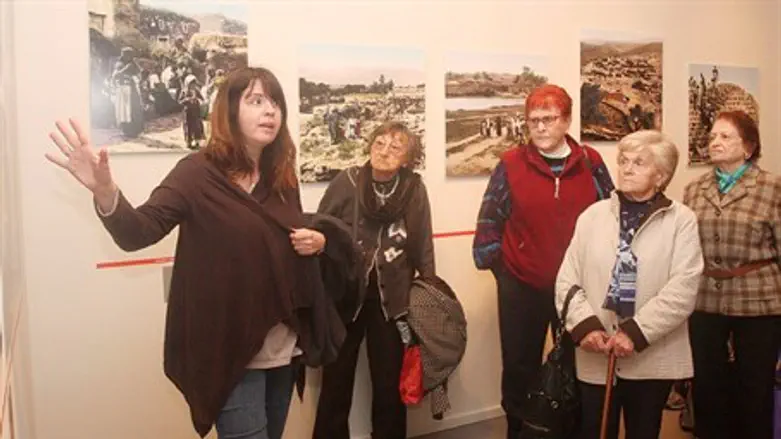
The anti-Zionist and ultra-leftist organization Zochrot intends to hold an event in March dedicated to "realizing the right of return of Palestinian refugees" at the Eretz Israel Museum in Ramat Aviv, a neighborhood of Tel Aviv.
The provocative invitation to the event calls the location of the museum "Sheikh Munis" – the name by which a part of Ramat Aviv was known, before its Arab residents fled following the Independence War – or "the Nakba" (Arabic for "catastrophe"), as the invitation refers to it.
Ramat Aviv is also where Tel Aviv University stands, and leftists from the university are often reminded by nationalists that the Arabs seek "Sheikh Munis," too, and not just Judea and Samaria.
Zochrot tried to hold a similar event at the Eretz Israel Museum in 2013, as well. However, after grassroots Zionist groups intervened, the museum rescinded its permission for the event.
According to Israel Hayom, Zochrot director Liat Rosenberg made clear that the group purposely insisted on holding the event at the museum, specifically because it had been rejected in the past. Similarly, she said, a film festival about the "Nakba" would be held at the Haifa Cinematheque, which had refused to cooperate with the event; "We simply paid money and hired it," she explained.
Another likely reason for the group's insistence on holding the event at the museum is that it was named the Eretz Israel Museum by ex-minister Rehavam Ze'evi Hy"d, who headed it in the 1980s. Ze'evi was a fierce nationalist who favored expulsion of Arabs from the Land of Israel, and was assassinated by terrorists in 2001.
The Director of the Eretz Israel Museum, Ilan Cohen, said that "The museum and the Tel Aviv-Yafo municipality do not critique the content of the gathering that the NGO seeks to hold, like any other body. The museum rents out the halls for public use, in accordance with regular rental procedures."
The name Zochrot means "we remember," in the feminine. The name evokes the radical feminist movement's self-image as the pacifistic alternative to a militarist "patriarchy" that makes war. Almost inevitably, however, the "patriarchy" targeted for Israeli radical feminists' revulsion is the Jewish one, not the Arabs'.